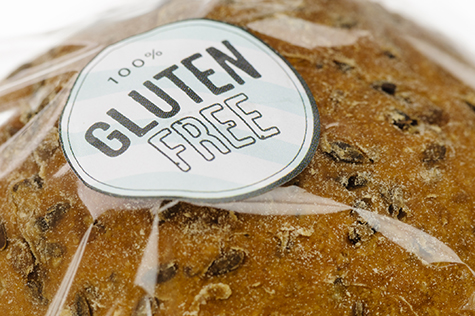6 Things to Know Before Going Gluten-Free

Over the past few years, what we know about gluten and our awareness concerning celiac and gluten-free eating has skyrocketed.
According to the National Foundation for Celiac Awareness, as many as 1 in 133 Americans have celiac, while upwards of 18 million have some non-celiac sensitivity to gluten.
Research, awareness, products and resources are making leaps and bounds before our very eyes concerning celiac, gluten sensitivity and gluten-free dieting.
Before you begin a gluten-free diet, you should know what you’re getting into. We’ve compiled a list of six important rules of thumb for anyone about to embark on a gluten-free lifestyle:
#1: Get Tested For Celiac First
Talk to a doctor and undergo testing before beginning a gluten-free diet. First of all, your system needs to have gluten in it for a celiac test to show up positive. Second, there are complications and treatments unique to celiac that you’ll want to pay close attention to if you indeed have it. So before you take your diagnosis into your own hands, make it official and save yourself the stress and questions later on.
#2: Gluten Hides!
Get ready for ingredient checking, and make yourself familiar with all of the possible ingredients that contain gluten. Some frequent culprits that aren’t so obvious are salad dressing, soy sauce, barley malt, malt vinegar and teriyaki sauce. Get familiar with this list! Gluten can be hiding in ice cream, in sushi rice, in spice mixes, in veggie burgers, in sweets and chocolates and even in fruit juice.
#3: You Don’t Need To Avoid All Grains:
Just because it’s a grain does not mean it contains gluten. A gluten-free diet still leaves you with lots of grain options, including rice, quinoa, gluten-free oats, amaranth, buckwheat and millet. On a similar note, not all flours contain gluten. Rice flour, corn flour and potato flour are just a few of the myriad of options available to you. Become familiar with these grains and flours, where to get them and how to prepare them. You’ll barely notice that you’ve removed gluten from your diet!
#4: Your Gut Might Not Be The Only Thing That Heals:
Celiac and gluten-intolerance can cause a host of problems, and we may not even realize that gluten is the culprit. Don’t be surprised if after starting a strict gluten-free diet your skin clears up or your headaches go away. Celiac has also been linked to psoriasis and even infertility. Basically, this stuff can attack on numerous fronts, so be ready for getting healthy!!
#5: You Won’t Necessarily Lose Weight:
If you ditch the bagels for gluten-free bagels and lose the pasta for gluten-free pasta, you won’t be losing any weight. Gluten-free processed junk food is still junk food, folks. In fact, you could even gain weight on a gluten-free diet. Because celiac can damage your intestines to the point of serious malabsorption, the healing process leads to the healthy absorption of food and potentially weight gain. On the other hand, if you eat a carb heavy diet and after going gluten-free switch to a diet filled with vegetables, fruits and healthy proteins, you may slim down, but not because you stopped eating gluten.
#6: You Will Get Bugged About It – Constantly:
Prepare yourself for the heavy influx of comments. “But what will you eat?” “Are you really sensitive or just trying to eat healthy?” “I’m sure a little bit won’t hurt you, right?” Yes, this will be annoying, but there’s also a way to combat it. Knowledge is power, folks! Often times these people are unfamiliar with celiac and gluten-sensitivity, and sharing information with them (instead of the more appealing snide reply) will lead to a better understanding of gluten sensitivity and more compassion for your condition.
By Giliah Nagar at Celiact.com
